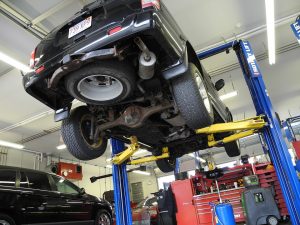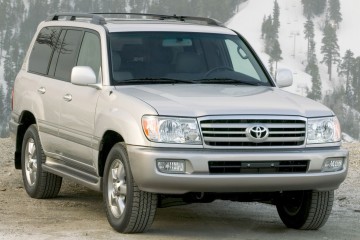
You’ve probably seen the certified pre owned vehicle (CPO) label while shopping for a vehicle, but do you really know that it means? More importantly, are certified pre owned vehicle worth the price premium that comes along with them? We’ll answer these questions in this post, but first let’s take a look at what CPO labeling means and how a vehicle that has the status is different from one without.
There are generally two types of certification that a preowned vehicle can be given: one by the manufacturer and one by the dealer selling the vehicle. The manufacturer certification process varies between brands, but almost always includes a set of standards that a dealer must use to judge the quality and condition of a used vehicle. The standards usually have limitations on mileage, age, and accident/repair history, and will involve replacing common wear items like brakes and tires.
The manufacturer will typically extend the factory warranty on these vehicles to a varying degree and may also offer some form of no-cost maintenance program. Dealers must also apply and pay for the ability to certify vehicles through a manufacturer. All of that additional work to evaluate the vehicle and make repairs comes at a cost to the dealer selling it and is passed along to the buyer as a result.
When a certified pre owned vehicle is certified by a dealer, the standards and requirements are not set by the manufacturer and may not be recognized at any other location as a result. That individual seller may or may not perform an inspection and repair process that aligns with the ones mandated by vehicle manufacturers, and in some cases is under no obligation to disclose the full extent of their program. This can be both a good and bad thing, depending on the dealer, as the vehicle has been given more attention than others but will be sold at a markup similar to the manufacturer-certified vehicles.
When is a CPO Worth the Cost?

First, any used vehicle will benefit from an extended warranty and a thorough inspection prior to being sold. The cost and value of that process is where the questions come into play. Luxury brands, performance vehicles, and vehicles that came with a high MSRP when new are where paying a bit more for a certified pre owned vehicle makes the most sense. These vehicles typically carry higher repair costs and more complex engineering prone to malfunction. Their resale values are sometimes also higher, which means that the added cost of buying a certified pre owned vehicle may be a much smaller percentage of the overall purchase price.
Given the more expensive repair costs and sometimes difficult-to-find parts, it’s important to find a manufacturer-certified vehicle for these categories instead of one that has been certified by a dealer. This will ensure that the vehicle’s condition has been verified by mechanics that are knowledgeable and familiar with the specific vehicle’s make, and that the extended warranty (if there is one) will be recognized at other locations.
When is CPO Not Worth the Cost?

There’s a reason that certain vehicle brands maintain their value well beyond their original sale date. Some vehicles, particularly those made by companies like Toyota and Honda, have a reputation for lasting a long time with few repairs (someone will disagree, I’m sure). These brands’ vehicles don’t experience as many costly issues as some from the European family as they age. The added cost of a warranty may not be worth it for one of these purchases, partly because of the inherent reliability of the vehicle, and because their slower depreciation sometimes means a higher purchase price on the used market to begin with.
We’re not telling you not to purchase a certified vehicle, no matter the brand. The added peace of mind is worth the cost for some people, which is completely understandable. Others will avoid warranties like the plague, insisting that the risk of catastrophic failures is not high enough to justify a price premium sometimes reaching into the thousands of dollars.
Finally, no warranty is going to make a bad car good again, so do your research on the vehicle’s history and know what you’re getting into before walking into the showroom to negotiate. The Carfax is a great place to start, as is a record of local sales for similar vehicles. Understand what the warranty will and won’t do for you, and if you feel that the cost is worth the extra assurance – go for it.
(Article continues below)




